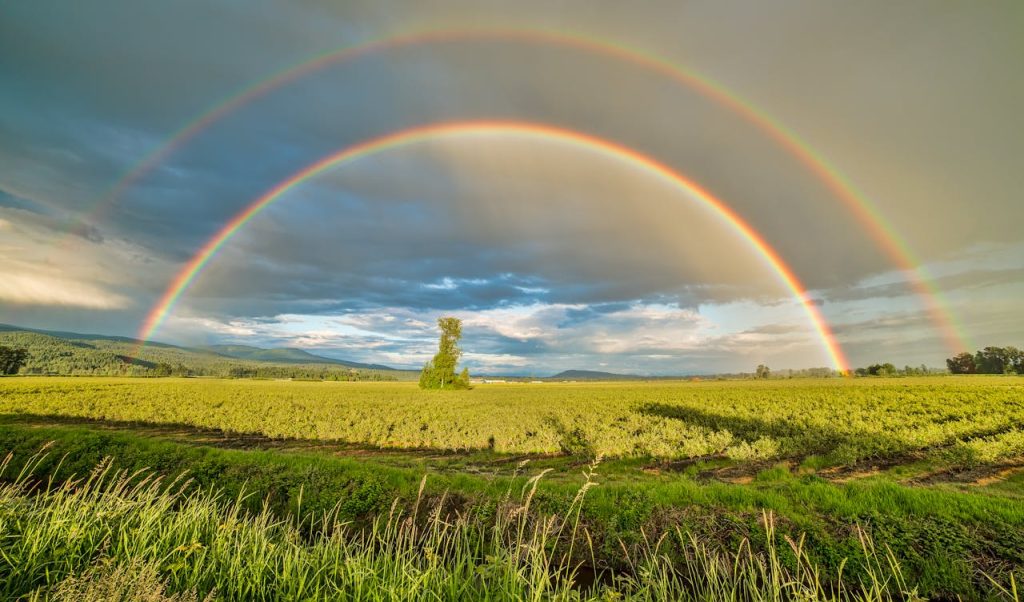Wellness
The Healing Canopy: How Nature Enhances Our Well-being
Welcome to a deep exploration of nature’s impact on mood and well-being, a timely reminder of our intrinsic link to the land, the sea, and the sky.

In our bustling, technology-laden world, the call of the natural world often goes unheard. Yet, across the ages, nature has served as a sanctuary, a place of renewal and reflection, inspiring poets and philosophers to extol its virtues and instruct us to ‘stop and smell the roses.’ But what science now reveals is that the sentiment behind these age-old adages is more than mere romanticism; it’s rooted in health and happiness.
Welcome to a deep exploration of nature’s impact on mood and well-being, a timely reminder of our intrinsic link to the land, the sea, and the sky.
Recognizing the Human Connection to Nature
It’s a connection as old as time—humankind’s unbreakable bond with the natural world. Ancient civilizations viewed nature not merely as a provider but as a deity, a source of wisdom and a mirror to the soul. Today, this connection remains, resonating within each of us, waiting to be rekindled.
The essence of this connection has been woven into the cultural fabric of peoples across the globe. Whether in the tranquil Zen gardens of Japan or the windswept moors of England, nature’s influence is undeniable.
The Historical and Cultural Significance of Nature
From the Garden of Eden to the legends of forests and oceans, nature has played a pivotal role in diverse cultural narratives. Throughout history, people have sought solace and community amongst the trees, attributing healing powers to natural springs and caves. The use of herbal medicine and the belief in natural cycles of life and death attest to the pervasive influence of nature across traditions.
The Science of Nature Therapy
The burgeoning field of ecotherapy is a testament to how far we’ve come in understanding and prescribing nature’s balm. Researchers now investigate the psychological and physiological benefits of being in natural environments, with studies pointing towards significant reductions in stress and increased well-being.
Exploring the Field of Ecotherapy
Ecotherapy, or nature therapy, encompasses various practices that merge the healing potential of the outdoors with therapeutic techniques. It aims to improve mental health, emotional well-being, and physical health, delivering a holistic approach to healing.
The Psychological and Physiological Benefits of Nature Exposure
Time spent in nature has been linked to improvements in mood and mental clarity. This experience, known as being in a state of ‘flow,’ where one is effortlessly engaged with their surroundings, can lead to a cascade of positive psychological effects.
Nature as a Stress Reliever and Mood Enhancer
Stress—it’s the ubiquitous malaise of modern life. However, nature appears to hold a restorative power. Whether it’s the sound of waves lapping on the shore or the sight of a majestic forest, natural environments have been shown to calm the mind and elevate mood.
The Role of Nature in Alleviating Anxiety and Depression
The prevalence of anxiety and depression has grown in tandem with our modern, screen-centric lifestyles. Yet, there is compelling evidence that nature exposure can alleviate symptoms. One study found that a 90-minute nature walk reduced activity in the area of the brain linked with depressive rumination.
Connecting with Nature for Improved Cognitive Function
The benefits of nature go beyond the emotional—our cognitive function also reaps the rewards. Nature walks have been shown to improve attention and working memory performance in individuals diagnosed with depression.
The Healing Power of Natural Environments
In the quiet power of a sunrise or the gentle caress of a breeze, we find healing. Natural environments offer a non-pharmacological approach to enhanced well-being that has been harnessed by individuals and healthcare professionals alike.
Therapeutic Effects of Natural Landscapes
The idyllic landscapes of mountains, forests, and coasts are more than a mere feast for the eyes. They are settings for psychological restoration, places where the mind can unwind and rebuild.
The Impact of Green Spaces on Physical and Mental Well-being
Urbanization has brought us indoors and away from the green expanse of country fields. However, the integration of green spaces within urban architecture can provide mental and physical health benefits, mitigating the stress of city life.
Nature’s Contribution to Physical Well-being
We are physical beings, and nature provides the ultimate gym—a vast expanse for walking, running, climbing, and playing. Physical activity in natural settings is not only enjoyable but also reinvigorating for body and soul.
Outdoor Activities and Physical Exercise in Natural Settings
The options for outdoor physical activity are as diverse as the natural world itself, from the vigorous exertion of mountain biking to the gentle flow of roadside yoga.
The Role of Nature in Boosting Immune Function
The practice of ’forest bathing,’ or shinrin-yoku, a leisurely and mindful walk through the forest, has been found to enhance immune response. Spending time in nature exposes us to a rich array of beneficial microorganisms that can strengthen our immune system.
Nature’s Influence on Sleep Quality and Restoration
The connection between exposure to natural light and our circadian rhythms is well-documented. Those who engage with nature regularly often report improved sleep patterns and a deeper sense of rejuvenation upon waking.
Nature, Stress Reduction, and Cortisol Levels
The stress hormone, cortisol, is an omnipresent marker of our body’s response to tension. Studies have shown that activities in natural settings lead to a decrease in cortisol levels, suggesting that nature can serve as a potent stress-reliever.
Creating Tranquil Spaces for Stress Relief
Lush gardens and serene parks provide oases in the midst of urban stress. The incorporation of nature into the built environment through green infrastructure can also provide respite for city-dwellers.

Incorporating Nature Breaks into Daily Routines
Finding time for nature breaks, whether a brief pause to admire a flowering tree or a 15-minute stroll in the local park, can be crucial for managing the daily pressures of life.
Biophilia: Innate Connection to Nature
Biophilia, a term coined by Edward O. Wilson, recognizes our instinctive affiliation with nature. This primal bond has implications for our mental, physical, and social well-being.
Understanding the Biophilic Instinct
Biophilia is more than a vague feeling of comfort in nature—it’s an evolutionary response that urges us to seek out and connect with natural forms and processes that ultimately enhance our sense of well-being.
Exploring Biophilic Design in Architecture
Biophilic design principles are becoming staples in architectural innovation, as designers create spaces that echo the vitality and tranquility of nature, promoting a healthier, happier human experience.
The Impact of Nature-Inspired Spaces on Well-being
Workplaces, hospitals, and homes that integrate elements of nature, such as natural light, greenery, and natural materials, have been associated with improved recovery times, increased productivity, and decreased mental fatigue.
Nature and Social Well-being
Our engagement with nature is often shared, fostering social connections among like-minded individuals. Communities born of these shared experiences often demonstrate a stronger, more cohesive bond.
Shared Nature Experiences and Social Connection
Group hikes, community gardens, and environmental projects can strengthen social networks, creating a sense of belonging and support.
Nature’s Role in Strengthening Community Bonds
Communities that engage with nature together tend to have a stronger communal identity and solidarity, contributing to greater resilience and social well-being.
Nature-Based Activities for Families and Groups
Families and groups that engage in outdoor activities build memories, shared values, and stronger relationships, underlining nature’s influence on the complex tapestry of human social life.
Nature and Creativity
Art and innovation often find their genesis in the great outdoors. The expansive vistas, intriguing patterns, and profound silence of nature offer fertile ground for creative inspiration.
The Inspirational Power of Natural Settings
Visual artists, writers, and musicians have long sought inspiration from nature’s splendor, harnessing its majesty to create timeless works of art.
Creativity and Problem-Solving in Natural Environments
Studies have suggested that even the simple act of walking in nature can enhance creative problem-solving skills, offering a fresh perspective and new ideas.
Nature’s Influence on Artistic Expression
The stylistic elements of various art forms often reflect nature’s influence, from the expressive brush strokes of Impressionist paintings to the tranquil notes of ambient music, bridging the gap between human creativity and the natural world.
Access to Nature in Urban Environments
For a growing majority, urban life is the norm, but this need not signify a complete disconnection from nature. Urban green spaces and carefully designed natural features can offer crucial access points to the outdoor world.
The Importance of Green Spaces in Cities
City parks and gardens are more than mere decorations; they are essential components of a healthy urban ecosystem, providing places to relax, exercise, and socialize.
Urban Planning for Nature Integration
Forward-thinking urban planners are finding innovative ways to harmonize the built environment with the natural, incorporating rooftop gardens, green walls, and public green spaces.
Community Initiatives for Bringing Nature to Urban Dwellers
Local groups and governments often spearhead initiatives to cultivate green areas within urban landscapes, creating opportunities for residents to engage with nature without leaving the city.
Mindful Nature Practices
Mindfulness, the practice of being present in the moment, finds a profound ally in nature. From the intricate dance of leaves in the wind to the sound of birdsong, nature serves as a catalyst for deeper presence and awareness.
Incorporating Mindfulness in Nature Exploration
Mindful nature practices encourage a heightened awareness of one’s surroundings. Techniques such as deep breathing, grounding exercises, and sensory awareness can foster a mindful connection to nature.
Nature Meditation and Mindful Walking
Meditation in natural settings can deepen the practice, with focused attention on the environment leading to a more robust and integrated experience.
Mindful Observation of Natural Elements
Mindfully observing natural elements can lead to a richer understanding of the world around us, fostering a sense of interconnection and awe.
Nature and Seasonal Changes
Nature’s rhythms are cyclical, and our well-being is intrinsically linked to these seasonal shifts. Each season offers its unique gifts and challenges, which we can adapt to and learn from.
Adapting Well-being Practices to Different Seasons
Tailoring our well-being practices to the seasons can align us with nature’s cycles, promoting harmony and health. Winter may call for more reflective activities, while summer may inspire more active pursuits.
Embracing Seasonal Activities for Mood Enhancement
Engaging in seasonal activities, such as gardening in spring or skiing in winter, can invigorate our senses and elevate our spirits.
Nature’s Lessons on Change and Resilience
Observing the changes in nature can teach us valuable lessons about adaptability and the beauty of transformation, preparing us for life’s inevitable shifts.
Nature Conservation and Personal Well-being
Our pursuit of well-being is inextricably linked to the health of our planet. Engaging in conservation efforts not only benefits the environment but also enriches our own lives.
The Reciprocal Relationship Between Nature and Humans
The principle of reciprocity is evident in our relationship with nature; as we care for the earth, it, in turn, nurtures us. This understanding can inspire a more intimate and responsible connection with our planet.
Engaging in Conservation for Environmental and Personal Health
Conservation work offers a dual advantage, promoting environmental stewardship while allowing individuals to experience the joy and satisfaction of contributing to a greater good.
The Ethical Imperative of Protecting Nature for Future Generations
The imperative to safeguard nature for future generations is a call to action for personal and collective responsibility, ensuring the continuation of its bountiful gifts.
Success Stories and Personal Transformations
Real-life accounts of nature’s impact on well-being are both inspiring and relatable. Tales of personal transformation underscore the profound influence of the outdoors on our mental and physical health.
Positive Changes in Mental and Physical Health
Individuals share how their lives have been enriched by nature, whether it’s through weight loss from hiking, improved mood from daily nature walks, or overcoming depression through sustained engagement with the outdoors.
Practical Tips and Lessons Learned from Nature Therapy
Firsthand experiences often yield practical insights and tips for others looking to integrate nature into their well-being routine, from the best times to engage with nature to the most beneficial activities to pursue.
The Future of Nature and Well-being
As we look to the future, one thing is abundantly clear—nature must be a centerpiece of our approach to holistic health. The movement towards greater nature connection is not a trend but a necessity for the well-being of individuals and the planet alike.
Inspiring a Global Movement towards Nature Connection
Experiences shared in this post can inspire others to seek their place under the healing canopy of nature, tapping into its potential for transformation.
The Ongoing Exploration of Nature’s Profound Influence on Human Well-being
Research into nature’s impact on health is an evolving field, with much yet to discover. The ongoing exploration of this topic presents an opportunity for continuous learning and growth.
Encouraging Readers to Embrace Nature for Improved Well-being
This deep-dive into the effects of nature on mood and well-being is a firm call to action for readers to prioritize their connection with the natural world. Its teachings can guide us to a more balanced, grounded, and joyful existence.
Summarizing the Transformative Impact of Nature
The myriad ways in which nature can improve our lives serve as a testament to its importance in shaping our health and happiness. By understanding and harnessing the power of nature, we take a step towards a more vibrant and fulfilling life.
From the tranquil woodland to the majestic mountain, from the vast ocean to the fertile meadow, nature awaits, ready to offer its ageless wisdom and immeasurable gifts. It’s time to listen, to return to our roots, and thrive under the nurturing canopy of the great outdoors.
Mental Health
Breaking the Stigma: Mental Health Awareness – Fostering Understanding and Compassion
Stigma refers to negative attitudes, beliefs, and stereotypes that society holds towards certain groups of people.

In a world that often champions physical well-being, mental health has long been shrouded in stigma and silence. However, a paradigm shift is underway as society increasingly recognizes the importance of mental health and strives to break down the barriers that hinder open dialogue.
We will delve into the landscape of mental health awareness, unravel the roots of stigma, highlight the pressing need for conversation, and discuss practical steps toward fostering understanding and compassion.
What does stigma mean, and how does it impact our mental health?
Stigma refers to negative attitudes, beliefs, and stereotypes that society holds towards certain groups of people. When it comes to mental health, stigma can manifest as discrimination, prejudice, or the social exclusion of individuals with mental health conditions. This stigma can have significant effects on mental health in several ways:
- Delay in Seeking Help: Stigma often prevents individuals from seeking help for mental health issues. Fear of judgment or discrimination may lead people to avoid discussing their struggles or seeking professional assistance.
- Social Isolation: Stigma can contribute to social isolation. Individuals may withdraw from friends, family, and social activities to avoid judgment, leading to feelings of loneliness and exacerbating mental health challenges.
- Low Self-Esteem: Perceived or experienced stigma can negatively impact self-esteem. Internalizing societal prejudices can contribute to feelings of shame and inadequacy, further affecting mental well-being.
- Limited Opportunities: Stigma may limit opportunities for education, employment, or social integration for individuals with mental health conditions. This discrimination can hinder personal growth and overall life satisfaction.
- Impacts on Treatment Adherence: Stigma can affect the willingness of individuals to adhere to mental health treatment plans. The fear of being labeled or judged may lead to reluctance to take prescribed medications or attend therapy sessions.
The Landscape of Mental Health Awareness
1. Recognizing the Spectrum of Mental Health:
Mental health is a spectrum that encompasses a range of emotional, psychological, and social well-being. It affects how individuals think, feel, and act, influencing the way they handle stress, relate to others, and make life choices.
2. Prevalence of Mental Health Challenges:
Mental fitness-demanding situations are pervasive, affecting human beings of all ages, backgrounds, and walks of life. Conditions such as anxiety, depression, bipolar disorder, and schizophrenia, among others, impact millions globally.
3. The Impact of Stigma:
The stigma surrounding mental fitness is a great barrier to in search of help. Misconceptions, fear, and societal judgment often lead individuals to hide their struggles, contributing to delayed intervention and prolonged suffering.
Understanding the Roots of Stigma
1. Historical Perspectives:
Historically, mental health has been viewed through various lenses, often rooted in misconceptions and fear. Stigmatizing beliefs have perpetuated a sense of shame and isolation for those grappling with mental health challenges.
2. Media Portrayals:
Media performs an effective position in shaping societal perceptions. Stereotypical portrayals of mental health conditions in the media can reinforce negative stereotypes, contributing to the perpetuation of stigma.
3. Lack of Education:
A dearth of accurate information about mental health contributes to misunderstandings. Educational gaps fuel myths and misconceptions, further stigmatizing those facing mental health challenges.
4. Fear of Discrimination:
Fear of discrimination can prevent individuals from disclosing their mental health status. Concerns about judgment, societal prejudice, and potential repercussions in personal and professional spheres create a culture of silence.
5. Cultural and Social Factors:
Cultural norms and societal expectations around mental health vary widely. In some cultures, mental health challenges may be stigmatized more severely, inhibiting open discussions and impeding access to support.

The Urgent Need for Conversation
1. Promoting Open Dialogue:
Breaking the stigma begins with open dialogue. Encouraging conversations about mental health creates a supportive environment that fosters understanding, empathy, and validation.
2. Humanizing the Experience:
Personal narratives and lived experiences humanize mental health challenges. Sharing stories of resilience, recovery, and coping strategies helps dispel myths challenges stereotypes.
3. Normalizing Seeking Help:
Seeking help for mental health challenges should be viewed as a sign of strength, not weakness. Normalizing the act of reaching out for support reduces barriers to seeking professional help.
4. Educating Communities:
Comprehensive mental health education is a powerful tool for dispelling myths and fostering understanding. Educational initiatives can address the roots of stigma and empower individuals to support one another.
5. Workplace Mental Health Initiatives:
Workplaces play a crucial role in promoting mental health awareness. Implementing initiatives that prioritize employee well-being, offer mental health resources, and encourage open conversations create supportive environments.
Practical Steps Towards Fostering Understanding and Compassion
1. Empathy and Active Listening:
Developing empathy and active listening skills is fundamental to fostering understanding. Listening without judgment and offering genuine support creates a safe space for open conversations.
2. Language Matters:
Using respectful and inclusive language helps destigmatize mental health conditions. Avoiding derogatory terms and employing person-first language emphasizes the individual, not the condition.
3. Challenging Stereotypes:
Actively challenging and dispelling stereotypes is crucial. Educate yourself and others about the realities of mental health conditions, and correct misinformation when encountered.
4. Advocacy for Mental Health Policies:
Advocating for mental health policies and resources is essential for systemic change. Support initiatives that prioritize mental health in healthcare systems, workplaces, and educational institutions.
5. Supporting Mental Health Organizations:
Organizations dedicated to mental health advocacy and support play a vital role. Contributing time, resources, or donations to these organizations helps amplify their impact and promote awareness.
6. Integrating Mental Health into Education:
Integrating mental health education into school curricula fosters early awareness and understanding. Providing young people with the tools to navigate their mental health promotes lifelong well-being.
7. Encouraging Self-Care Practices:
Promoting self-care practices and well-being initiatives reinforces the importance of mental health. Encourage activities that support mental well-being, such as mindfulness, exercise, and hobbies.
8. Destigmatizing Therapy and Medication:
Encourage open discussions about therapy and medication. Recognize these interventions as legitimate and effective components of mental health care, rather than stigmatizing them.
9. Creating Safe Spaces:
Establishing safe spaces for conversations about mental health reduces the fear of judgment. Encourage open discussions in various settings, such as community centers, workplaces, and educational institutions.
10. Leading by Example:
Modeling open and supportive behavior sets a powerful example. By sharing your own experiences, seeking help when needed, and demonstrating compassion, you contribute to breaking the stigma.
The Intersectionality of Mental Health Awareness
1. Recognizing Diverse Experiences:
Mental health awareness must acknowledge the diverse experiences of different communities. Intersectionality considers how factors such as race, gender, sexual orientation, and socioeconomic status intersect with mental health.
2. Tailoring Support:
Recognizing the unique challenges faced by various communities allows for tailored support and interventions. Culturally competent mental health care ensures that individuals receive relevant and effective assistance.
3. Addressing Disparities:
Mental health awareness initiatives should actively address disparities in access to care. Efforts to eliminate barriers, reduce stigma, and increase resources must be inclusive and equitable.
The Ripple Effect of Breaking the Stigma
1. Empowering Individuals:
Breaking the stigma empowers individuals to prioritize their mental health. When people feel supported and understood, they are more likely to seek help and engage in proactive mental health practices.
2. Strengthening Communities:
Open conversations about mental health strengthen communities. Shared understanding fosters a collective commitment to well-being, creating a supportive network for individuals facing mental health challenges.
3. Transforming Systems:
As stigma is dismantled, systemic changes occur. Mental health becomes a priority in healthcare, education, and workplace policies, leading to more comprehensive and accessible mental health support systems.
4. Shaping a Compassionate Society:
A society that actively breaks the stigma around mental health is characterized by compassion and empathy. Individuals feel seen, heard, and valued, contributing to a collective sense of well-being.
In Conclusion: A Collective Call to Action
Breaking the stigma surrounding mental health is a collective responsibility that requires the engagement of individuals, communities, and institutions. By fostering understanding, empathy, and compassion, we can create a world where mental health is prioritized, and seeking support is met with encouragement rather than judgment.
As we navigate the complexities of the human experience, let us stand united in our commitment to breaking the stigma. Through open dialogue, education, and advocacy, we can build a society where mental health is embraced as an integral aspect of well-being—a society that recognizes the strength, resilience, and humanity of every individual, regardless of their mental health journey.
Stop the Stigma: Why it’s important to talk about Mental Health
Frequently Asked Questions (FAQ)
- Why is it crucial to fight the stigma surrounding mental health?
- Fighting stigma reduces discrimination, encourages open dialogue, and promotes a supportive environment for individuals experiencing mental health challenges.
- How can raising awareness contribute to reducing stigma?
- Raising awareness helps dispel myths, educates the public, and fosters empathy, leading to a more informed and understanding society.
- What role does language play in combatting mental health stigma?
- Language is powerful. Using respectful and inclusive language helps break down stereotypes, fostering a more compassionate and stigma-free conversation around mental health.
- Why is destigmatizing mental health essential for seeking help?
- Destigmatizing mental health encourages individuals to seek help without fear of judgment, promoting early intervention and better outcomes for mental health conditions.
- How can workplaces contribute to reducing stigma around mental health?
- Workplaces can combat stigma by promoting mental health policies, providing resources, and fostering a culture that encourages open conversations about mental well-being.
- What is the impact of media representation on mental health stigma?
- Media plays a significant role in shaping perceptions. Accurate and empathetic portrayals of mental health in media can contribute to reducing stigma by challenging stereotypes.
- Why is it important for communities to be involved in mental health awareness?
- Community involvement fosters a sense of belonging and support. When communities actively engage in mental health awareness, it creates a more understanding and empathetic environment.
- Can education play a role in reducing mental health stigma?
- Yes, education is key. Integrating mental health education in schools and communities helps raise awareness, combat misinformation, and promote a culture of understanding.
- How can individuals contribute to fighting mental health stigma?
- Individuals can contribute by educating themselves, sharing their stories, challenging stereotypes, and fostering open conversations about mental health in their social circles.
- What resources are available for those wanting to learn more about mental health stigma?
- Various organizations and online platforms provide resources on mental health awareness, offering information, toolkits, and guides for understanding and combating stigma.
- How does fighting mental health stigma contribute to overall community well-being?
- Combatting stigma enhances community well-being by creating a more inclusive and supportive environment, where individuals feel safe to discuss and address their mental health needs.
Wellness
Why Do You Run? 11 Benefits of Running
Achieving personal running goals, whether it’s completing a certain distance or improving your pace, can boost self-esteem and confidence.

Table of Contents
Why Do You Run?
“Why Do You Run?” is a question that delves into the motivations behind an individual’s decision to engage in running. The summary would likely explore the personal, physical, and psychological reasons people choose running as a form of exercise or recreation. It may touch upon the health benefits, the sense of achievement, stress relief, or the joy and freedom experienced during a run. Ultimately, the summary would capture the diverse and multifaceted reasons why people find running to be a meaningful and fulfilling activity in their lives.
11 Benefits of Running
Running offers a myriad of physical, mental, and emotional benefits. From improved cardiovascular health and weight management to enhanced mood and stress relief, running proves to be a versatile and accessible form of exercise. The activity promotes strong bones, boosts the immune system, and contributes to better sleep quality. Beyond the physical advantages, running is known for fostering mental resilience, increasing cognitive function, and providing a sense of accomplishment. Additionally, the social aspect of group running or participating in races adds a community dimension to this activity. Overall, the benefits of running extend far beyond mere physical fitness, positively impacting various aspects of one’s well-being.
Running offers a variety of physical, mental, and overall health benefits. Here are some key advantages of incorporating running into your routine:
1. Good Cardiovascular Health:
Running is an excellent cardiovascular exercise that helps improve heart health. It strengthens the heart, increases blood circulation, and reduces the risk of cardiovascular diseases.
2. Weight Management:
Running is an effective way to burn calories, making it a valuable tool for weight management and weight loss. Regular running can help control body weight and body fat.
3. Muscle Strengthening:
Running engages various muscle groups, including the legs, core, and even upper body. It helps tone and strengthen muscles, contributing to overall body fitness.
4. Bone Health:
Weight-bearing activities like running can enhance bone density, reducing the risk of osteoporosis and improving bone health. This is particularly important for maintaining strong bones as you age.
5. Mental Health:
Running is known to release endorphins, the “feel-good” hormones, which can help reduce stress, anxiety, and depression. It also improves mood and enhances cognitive function.
6. Improved Sleep:
Regular running has been linked to better sleep quality. The physical exertion and stress reduction associated with running can contribute to a more restful night’s sleep.
7. Boosted Immune System:
Moderate and regular exercise, such as running, has been shown to strengthen the immune system. It may help the body defend against illnesses and infections.
8. Increased Energy Levels:
Despite the initial physical effort, regular running can lead to increased energy levels over time. It improves stamina and endurance, making daily activities feel less tiring.
9. Social Opportunities:
Running can be a social activity when done with friends, family, or running groups. Building a supportive social network can provide motivation and make the activity more enjoyable.
10. Longevity:
Studies suggest that regular runners may live longer on average than non-runners. The combination of cardiovascular benefits, weight management, and overall health improvements contributes to a healthier and potentially longer life.
11. Improved Self-Esteem:
Achieving personal running goals, whether it’s completing a certain distance or improving your pace, can boost self-esteem and confidence.
It’s essential to start gradually, especially if you’re new to running, and consult with a healthcare professional if you have any pre-existing health conditions. Additionally, choosing appropriate footwear and maintaining proper form can help prevent injuries and ensure a positive running experience.
Also, see this video:
How Running Changes Your Body
-

 Personal Care7 months ago
Personal Care7 months agoWhy Regular Massages Could Be the Game-Changer Your Body and Mind Crave
-

 Mental Health7 months ago
Mental Health7 months agoHow to Overcome Phobias: 15 Positive Psychology-Based Strategies That Really Work
-

 Lifestyle7 months ago
Lifestyle7 months agoWhen Is It Time To Get a Divorce? Emotional, Mental & Practical Signs to Know
-

 Fitness7 months ago
Fitness7 months ago6 Quick Morning Exercises to Burn Belly Fat All Day
-

 Mental Health7 months ago
Mental Health7 months agoWhat Is A Depression Attack? Symptoms, Causes & How To Cope With One
-

 Lifestyle7 months ago
Lifestyle7 months agoHow to Improve Egg Quality for Fertility: Science, Lifestyle and Expert Tips
-

 Food7 months ago
Food7 months agoHealthy Rice Varieties: Nutrition and Health Benefits
-

 Personal Care7 months ago
Personal Care7 months agoHow to Reparent Your Inner Child: Healing and Self-Compassion




